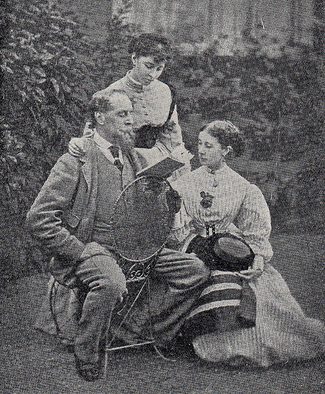Dickens: Copyright and the Land of the Freeloaders

Many millenniums ago the writer of Ecclesiastes drily observed: “Of making many books there is no end.” and that’s how it’s been ever since. And yet it would be naïve to think that earlier writers had motives any whit purer than later writers. In addition to intellectual curiosity and a desire to please their fellows there was always a lust for money, fame and power and the puissant pen was able to secure all these and even occasionally to trample a kingdom down. In this respect nothing changes.The story of Charles Dickens and the Americans is somewhat heuristic. I shall tell it my way. It is more truthfully told by Matthew Pearl but please accept this as a mere parable.
After his early years in poverty Charles Dickens was one of those Victorian writers who was making good money out of his works. The nineteenth century revolution in printing methods meant that his books were selling like hot cakes throughout the kingdom and he naturally liked to see all those pennies rolling in. Frustratingly, however, there was that other English reading population across the Atlantic. The Americans were enjoying Dickens too. His books were being widely published and printed and read and Charles was not receiving a penny. He was suffering from the most blatant appropriation of his work. This of course was because there was at that time no international copyright agreement in force and the libertarian, tax hating Americans saw no reason to pay English publishers and authors for words on pages that could just as easily be printed in America. All that was required was a little free enterprise or, as we might say nowadays, shameless piracy.
The Land of the Free began to look to him like the land of the freeloaders. He cried foul and campaigned for international regulation. But at some point over the years he began to take the point that the dissemination of his work in America was doing him no harm at all in terms of reputation and, critically, that cheap books in America were increasing his potential earning power as a popular visiting reader. When, in the 1860s, he did tour America to give readings from his books he received so warm a welcome and so much faster money than he had ever earned as a writer that he returned home thinking much more positively about America and the Americans.This story reminds us about the essential freedom of creative writing. Once a work escapes into the world it leads a life of its own. It may die but it may flourish, increase and multiply, pop up in strange places, it may mutate. Writings turn into lecture tours, verses turn into songs; novels are adapted for the stage, epics become movies; oneliners become idioms; work is plagiarised, parodied, translated, quoted, improved upon… The list is long and we live in an age when it seems to lengthen daily. What has once been created can be created again and again to the end of time by the energetic input of intelligent readers.
Read the entire article here.










